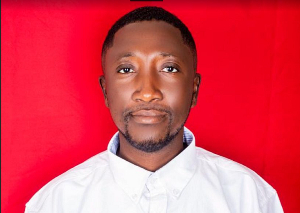- Home - News
- TWI News | TV
- Polls
- Year In Review
- News Archive
- Crime & Punishment
- Politics
- Regional
- Editorial
- Health
- Ghanaians Abroad
- Tabloid
- Africa
- Religion
- Election 2020
- Coronavirus
- News Videos | TV
- Photo Archives
- News Headlines
- Press Release
General News of Sunday, 27 May 2007
Source: GYE NYAME CONCORD
GNAT's caution - On New Educational Reform
The New Educational Reform, recently launched by President John Agyekum Kufuor, is predicted to face insurmountable challenges which if immediate action is not taken to resolve, will jeopardise the implementation of the programme.
According to Mr. Anthony Appiah, the 1st National Trustee of the Ghana National Association of Teachers (GNAT), the new Educational Reform Programme that proposes eleven years of Free Compulsory Universal Basic Education (FCUBE) and four years of Senior High School (SHS) formerly, Senior Secondary School (SSS), would require huge investment from government to enable the various institutions charged with the responsibility of running the reform programme function efficiently.
Mr. Appiah, who made these observations in an interview with the Gye Nyame Concord after a GNAT-media workshop at Swedru over the weekend, explained that the programme may take off smoothly within the next two years even if government does not increase its current levels of funding.
However, he said the genuine problems would be encountered after two years when school heads would find it difficult to accommodate fourth-year students as a result of limited class rooms and other learning and teaching materials.
"Look, the programme as introduced is good but my concern is that if government is not able to fund it fully, then we'll be back to the same problems that the former reform programme had", Mr. Appiah emphasized.
He further stated that apart from accommodation problems that the schools are billed to face in the next three years, the issue of trained teachers to take students through new subjects such as ICT, may also be a difficult challenge to the implementation of the programme as currently ICT trained teachers are not common in the country.
Also, he noted that the ICT sector is much controlled by private institutions, something he said government could hardly compete with.
The new system, which will be implemented on September 1, 2007, will begin with two years of kindergarten for pupils at age four; six years of primary school; three years of Junior High School (JHS). After the JHS, the student may choose to go into different streams of the four years of Senior High School which would offer General Education with electives in General Arts, Business, Technical, Vocational and Agricultural Education with options for entry into Tertiary Institutions or the job market.
Though, at the launch of the reform President Kufuor noted that the reform was designed, among other things, to prepare the appropriate human resources in the form of skilled, technologically-advanced and disciplined workforce with the right ethics to service the growing economy, some educationists in the country believe the implementation of the reform may rather be the problem.
The new educational reform document stresses on Mathematics, Science and Technology which have been the most difficult areas unable to attract qualified teachers for secondary schools in the country.
He called on government to come out clearly with specific details of the programme of teacher motivation covering such areas as personal emolument, mortgage schemes and health and safety since teachers constitute the most critical group to implement the reforms.
Mr Appiah advised government to incorporate into the Ministry of Education, Science and Sports (MOESS) the Inspectorate Division as envisaged in the reforms to include professional teachers specializing as inspectors, due to the understanding of dynamics in the schools and the classroom environments of such teachers.
The Minister of Education, Science and Sports, Papa Owusu-Ankomah, on his part, noted that a sober look at the country's education system brought out major failures, which if left unresolved would hinder efforts to propel Ghana to a great future.
He said about 60 percent of Junior Secondary School (JSS) graduates left school ill equipped and not proficient in craft and technical skills to enter the job market.
Papa Owusu-Ankomah said the new Education Reform was the best that the country could afford, that would address these systemic faults and correlate to the needs of industry so as to maximize potentials.
He said the Reform had innovation at its core with the decentralization of Government's supervision and monitoring to enhance effectiveness and create a paradigm shift in the approach to education.
Paapa Owusu-Amkomah said some of the innovations included emphasis on literacy; numeracy, creative arts and problem solving skills, adding that lessons would be learnt through play at the kindergarten level and that at the Lower Primary, English, Basic Mathematics Skills; Natural Science and the Dominant Ghanaian Language of the area would be taught.
"Tackling the toughest problems is indeed the truest sign of leadership and to that extent we laud again the efforts of President Kufuor, Professor Anamuah-Mensah and countless other unsung heroes who have made this reform possible," he added.
Professor Jerome Djangmah, Chairman of the West African Examination Council (WAEC), who spoke at the function, urged the Government to ensure that conditions of service of teachers were improved to support the implementation of the Reform. "If West African countries ignore their teachers, they will pay dearly for their sins" he said, adding that at the appropriate time Past Director Generals of Ghana Education Service would send a memorandum to the Ministry of Education, Science and Sports to enhance the implementation process."









